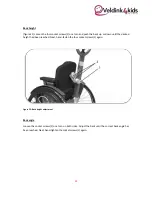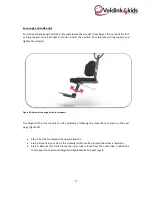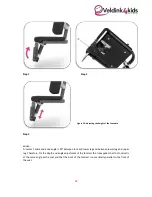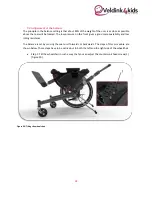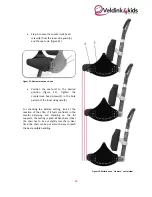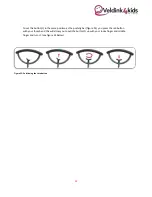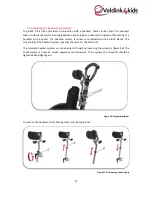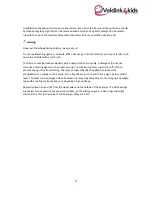
35
Seat angle
The seat angle is the angle of the seat to a horizontal line. This angle may, at the Kiddo Tilt set
between -10 ° and 10 °. In general, a seat angle of 5 ° as pleasant. If the child primarily drive by his/
her own there is chosen for a larger seat angle combined with a low seat height. This will ensure a
stable ride and promotes a turning point of the chair.
Works a child, at a certain moment, a long time behind a table, then a smaller or even a negative seat
angle is desirable because this activates a activate posture.
When a negative seat angle is desired, the two seat carriers (figure 27) (1) have to be replaced.
Adjusting a positive seat angle
(figure 26)
Loosen the four nuts(1) slightly. Now the seat can be adjusted at the front to move it upwards or
downwards. After that, the four nuts(1) have to be tightened back hand again.
Figure 26:Adjusting the positive seat angle











